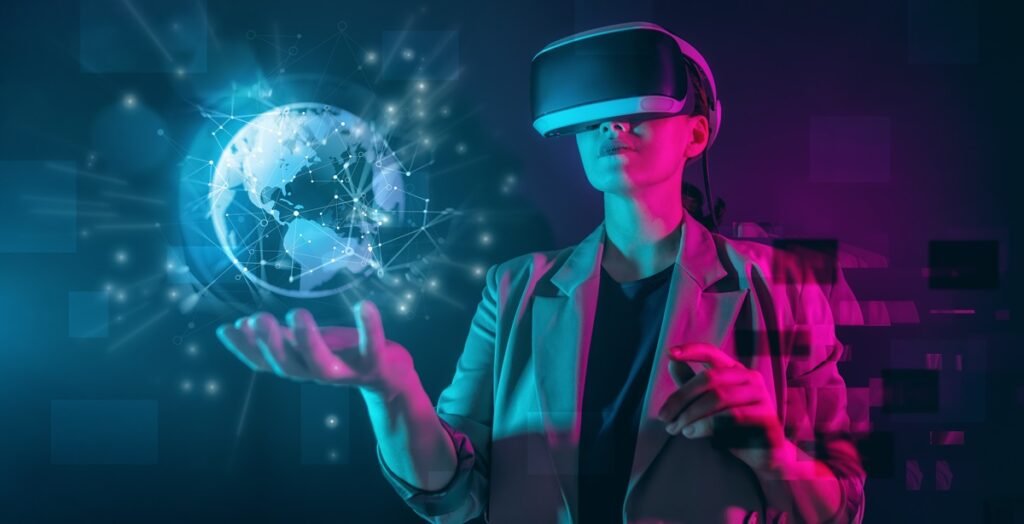
Let go of any preconceived notion that Augmented Reality (AR) and Virtual Reality (VR) are just flashy gadgets or limited to gaming sensations like Pokemon Go. It’s time for a business revolution!
With a staggering 32.7 million Americans diving into VR experiences, these technologies are not just a trend – they are redefining customer engagement, revolutionizing employee training, and reshaping the business strategy.
As numerous studies unveil the myriad benefits of immersive technologies in numerous industries – from risk reduction and contextualization to cost savings and enhanced memory retention – explore how AR and VR can propel your business into a new era of innovation.
AR business applications are a domain that is growing significantly.
● Operators and engineers in various industries actively use handheld devices for assistance, training, and remote guidance, enhancing operational efficiency and ensuring a safer workforce.
● In the automotive sector, augmented reality applications are used for design review, driver assistance and improved customer experience for product customization and marketing.
This technological integration leads to improved design precision, improved safety features, and a more engaging customer journey.
● Integrating AR in classrooms proves to generate a significant ROI (Return On Investment) as it allows learners to have an authentic experience leading to enhanced student engagement, knowledge retention, and overall academic performance.
● Augmented Reality transforms telemedicine with real-time collaboration for surgeries, enhancing medical training through immersive 3D visualizations.
● AR experiences in the e-commerce industry, prove to be 30 times more effective in driving engagement than traditional methods and empower leading companies to capture greater attention.
Simply put, the range of applications for augmented reality in business is growing exponentially according to the industry’s needs.
How Virtual Reality Boosts Your Business?
Unquestionably, virtual reality for business applications will be a transformative force.
● In manufacturing industries like Oil and Gas, virtual reality optimizes operational efficiency by implementing collaborative design processes and reviews for 3D visualization of geospatial data for exploration and production.
● Using VR in experiential marketing offers an immersive showcase of your brand, allowing consumers to focus entirely on your business. This increased engagement leads to 62% higher brand affinity, contributing to enhanced sales opportunities as customers feel more connected and involved with the brand.
● Leveraging VR in employee training accelerates learning, ensuring effective skills acquisition and real-world success, leading to significant time and resource savings.
